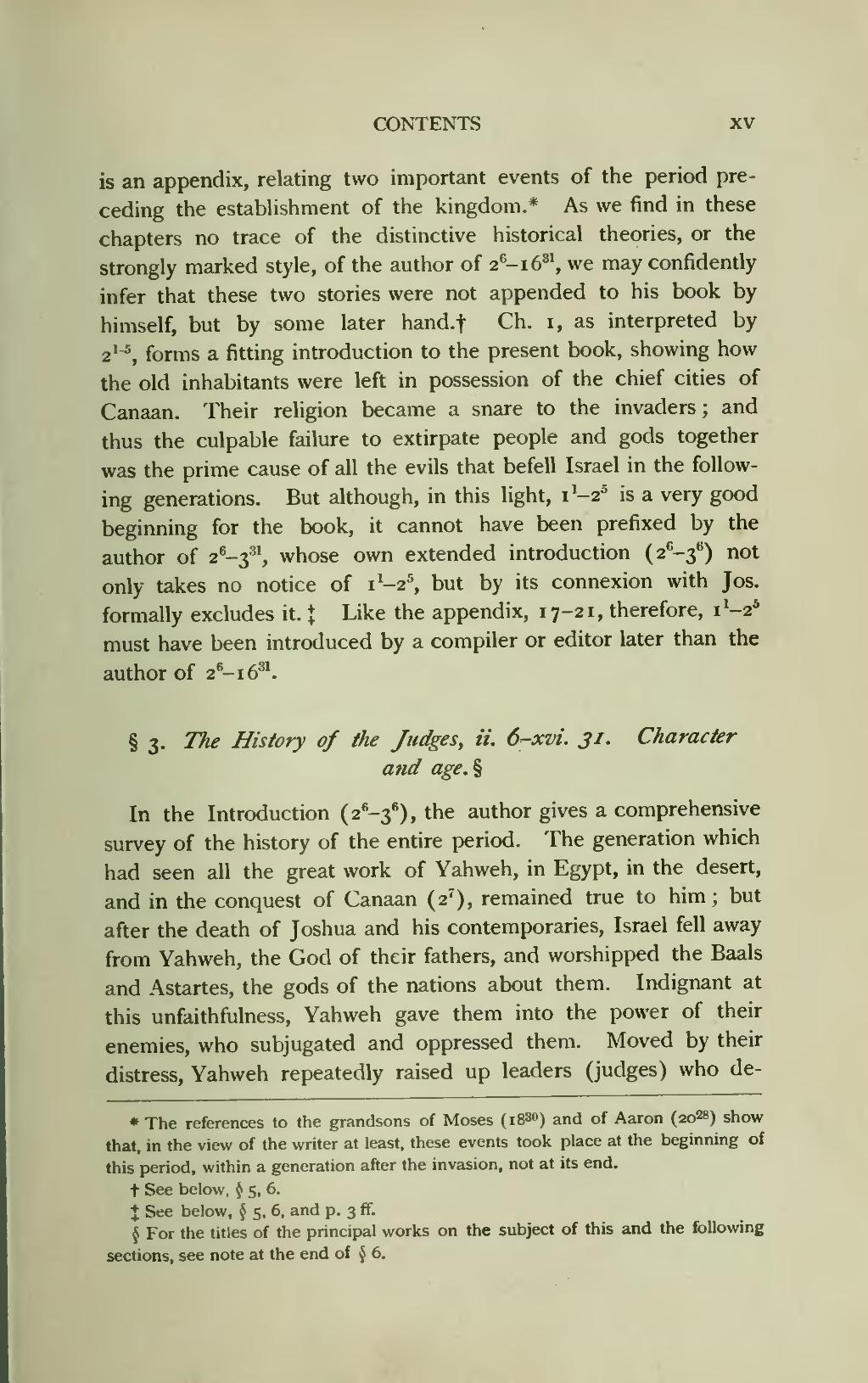is an appendix, relating two important events of the period preceding the establishment of the kingdom.[1] As we find in these chapters no trace of the distinctive historical theories, or the strongly marked style, of the author of 26–1631, we may confidently infer that these two stories were not appended to his book by himself, but by some later hand.[2] Ch. 1, as interpreted by 21–5, forms a fitting introduction to the present book, showing how the old inhabitants were left in possession of the chief cities of Canaan. Their religion became a snare to the invaders; and thus the culpable failure to extirpate people and gods together was the prime cause of all the evils that befell Israel in the following generations. But although, in this light, 11–25 is a very good beginning for the book, it cannot have been prefixed by the author of 26–331, whose own extended introduction (26–36) not only takes no notice of 11–25, but by its connexion with Jos. formally excludes it.[3] Like the appendix, 17–21, therefore, 11–25 must have been introduced by a compiler or editor later than the author of 26–1631.
§ 3. The History of the Judges, ii. 6–xvi. 31. Character and age.[4]
In the Introduction (26–36), the author gives a comprehensive survey of the history of the entire period. The generation which had seen all the great work of Yahweh, in Egypt, in the desert, and in the conquest of Canaan (27), remained true to him; but after the death of Joshua and his contemporaries, Israel fell away from Yahweh, the God of their fathers, and worshipped the Baals and Astartes, the gods of the nations about them. Indignant at this unfaithfulness, Yahweh gave them into the power of their enemies, who subjugated and oppressed them. Moved by their distress, Yahweh repeatedly raised up leaders (judges) who de-
- ↑ The references to the grandsons of Moses (1836) and of Aaron (2028) show that, in the view of the writer at least, these events took place at the beginning of this period, within a generation after the invasion, not at its end.
- ↑ See below, § 5, 6.
- ↑ See below, § 5, 6, and p. 3 ff.
- ↑ For the titles of the principal works on the subject of this and the following sections, see note at the end of § 6.
